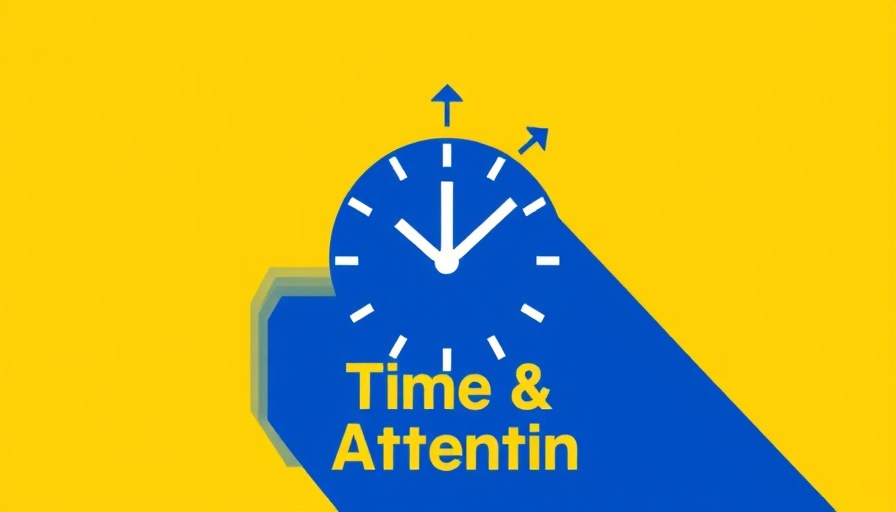
Finding Wisdom in Fiction: Productivity Lessons from Beloved Characters
In our fast-paced world filled with deadlines and overwhelming responsibilities, executives and entrepreneurs often seek innovative ways to enhance productivity. Surprisingly, valuable lessons lie not just in the latest self-help books or business seminars, but in the intricate narratives we see unfold in movies, TV shows, and novels. Fictional characters, facing their unique challenges, offer fundamental insights that can help us improve our own productivity and work smarter, not harder.
Embracing Imperfection with Ted Lasso
One of the standout characters is Ted Lasso, the affable coach from the Apple TV+ series. His optimistic approach to leadership emphasizes the importance of authenticity and vulnerability. By portraying failure as a learning opportunity, Lasso promotes a growth mindset that can drive productivity. How often do we feel pressured to present a perfect façade? Lasso's approach teaches us that accepting our imperfections can lead not only to genuine connections but can also foster a more efficient and collaborative team environment.
The Art of Strategic Thinking: Sherlock Holmes
Sherlock Holmes, the brilliant detective created by Sir Arthur Conan Doyle, embodies the essence of analytical thinking. His ability to observe the seemingly mundane details and piece them together for a greater understanding illustrates the importance of strategic thinking in solving complex problems. For busy executives, incorporating a Sherlock-like perspective can enhance efficiency. This includes spending time on analysis, depth rather than breadth, and prioritizing tasks based on keen insights rather than just busywork.
Delegation: The Power of Trust from The Office
Another iconic figure, Michael Scott from NBC’s The Office, encapsulates the challenges and triumphs of being a manager. While often comedic in his poor decision-making, one thing he occasionally does well is delegating. Executives can learn from Scott's missteps and successes in trust-building. Effectively delegating tasks can alleviate stress and empower team members, thus increasing overall productivity.
Inspiration from Hermione Granger’s Work Ethic
Hermione Granger from Harry Potter teaches the value of diligence and preparation. Her stay-ahead strategies exemplify the essence of not just working harder, but working smarter. The use of schedules, prioritizing tasks, and applying efficient studying techniques can be mirrored in the workplace. Setting clear goals, much like Gryffindor's brightest student, ensures that professionals are aligned with their objectives and use their time wisely.
Creative Problem-Solving: Lessons from Tony Stark
Tony Stark, the genius behind Iron Man, showcases how creative problem-solving can lead to innovative solutions. A crucial takeaway from Stark’s approach is the acceptance of trial and error. In the entrepreneurial landscape, where risks are inherent, being open to experimentation allows businesses to pivot efficiently when faced with challenges. Adopting an iterative process can foster a culture of innovation and maintain productivity amidst competition.
A Balancing Act: Lessons from Lisa Simpson
Lisa Simpson from The Simpsons captures the work-life balance many entrepreneurs aspire to achieve. Despite her youth, Lisa's pursuits and convictions reflect a conscientious approach to managing family, education, and personal goals. For busy executives, taking a page out of Lisa’s book could lead to a healthier work-life balance, which is essential for long-term efficiency.
Conclusion: The Importance of Learning from Fictional Characters
Fictional narratives resonate with us because they reflect our struggles and aspirations. The productivity hacks derived from these beloved characters remind us that efficiency doesn’t stem from rigid structures but from adaptable mindsets, trust in our teams, and embracing our unique styles. As we navigate the complexities of our work lives, drawing inspiration from these characters may not only enhance our productivity but also our overall work experience.
This exploration highlights the value of integrating creative insights into everyday productivity challenges. By adopting these principles, executives and entrepreneurs can pave the way for effective work strategies and foster environments conducive to growth and collaboration.
 Add Row
Add Row  Add
Add 




Write A Comment